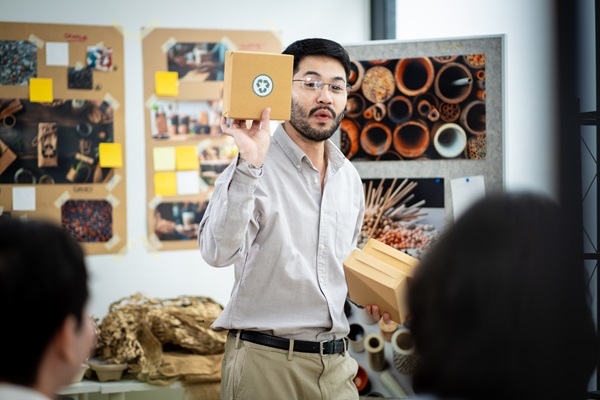Sustainability is no longer a passing trend; it is a global imperative that influences policies, business practices, and personal choices. With governments, corporations, and individuals actively seeking solutions to environmental and societal challenges, the demand for qualified sustainability professionals has skyrocketed. Whether you are passionate about climate change, renewable energy, or ethical business practices, a career in sustainability offers the chance to contribute meaningfully and drive change on a global scale.
This guide will walk you through the essential aspects of building a successful career in sustainability, exploring key roles, necessary qualifications, and actionable strategies to help you make an impact.
What is a Career in Sustainable Development?
At its core, a career in sustainability development revolves around balancing environmental conservation, social equity, and economic growth. Professionals in this field ensure that today’s practices and policies meet the needs of the current population without compromising future generations. This multidisciplinary field spans industries such as energy, agriculture, technology, and healthcare, which means there are numerous paths to explore.
Career Options in the Sustainability Field
The world of sustainability offers a variety of roles, ranging from hands-on environmental conservation to strategic corporate leadership. Whether you prefer working outdoors, creating innovative solutions, or influencing public policy, the sustainability sector has something to align with your passions and skills. Here’s an expanded look at career pathways in this dynamic field:
Conservation Scientists
They focus on preserving natural habitats and ecosystems. They may manage public lands, advise private property owners on sustainable land use, and develop strategies to combat deforestation or pollution. Their efforts ensure biodiversity and ecosystem health for future generations.
Sustainable Fashion Designers
They are transforming the fashion industry by developing eco-friendly fabrics, implementing circular design practices, and creating styles that reduce waste. They use materials like organic cotton, recycled polyester, or plant-based dyes and often advocate for ethical labor standards across the supply chain.
Green Architects and Urban Planners
Pioneers in designing sustainable infrastructures. Green architects specialize in energy-efficient building design, aiming for certifications such as LEED to ensure their projects meet high environmental standards. Urban planners work on larger scales, designing eco-friendly neighborhoods and promoting public transportation systems to reduce urban carbon footprints.
Climate Policy Advisors
They play a significant role in the systemic fight against climate change. They provide insights for governments and private entities, drafting detailed policies to lower carbon emissions, implement renewable energy projects, and enforce environmental regulations. Their work is instrumental in aligning local and global efforts to meet targets like net-zero emissions.
Food Systems Specialists
They are vital for promoting sustainable food sources. They focus on reducing food waste, developing farm-to-table initiatives, and supporting regenerative agricultural practices to improve soil health. Their work improves food security while minimizing the environmental footprint of global food production chains.
Renewable Energy Engineers
Engineers at the forefront of clean energy innovation. They design, test, and implement energy systems using wind, solar, hydro, and geothermal technologies. By crafting more efficient renewable energy solutions, they help reduce dependence on fossil fuels and enable the transition to a greener energy grid.
Environmental Educators
They inspire the next generation to care for the planet. They work in schools, community centers, or conservation programs, raising awareness about climate change, biodiversity, and sustainable practices. These educators often lead workshops and design curriculum that emphasizes actionable steps individuals can take to make a difference.
Corporate Sustainability Officers (CSOs)
They ensure that businesses operate responsibly towards the environment and society. They develop and oversee company-wide sustainability strategies, manage sustainability reporting under frameworks like GRI or CDP, and implement practices to boost energy efficiency and reduce waste. Their efforts not only enhance corporate reputation but also contribute toward a greener economy.
Waste Management Specialists
Focus on reducing the environmental impact of waste through innovative recycling, composting, and waste-to-energy initiatives. They may work at municipal facilities, private firms, or NGOs to develop systems that divert waste from landfills and promote the circular economy, where products are reused or repurposed instead of discarded.
These careers in sustainability demonstrate the diversity and scope within the sustainability sector. From working in fields and forests as a conservation scientist to shaping corporate policies as a CSO, the opportunities range from hands-on work preserving ecosystems to designing large-scale sustainable systems that impact global industries. The breadth of sustainability career options reflects the interconnected nature of sustainability itself; no matter your interests, there is likely a role where you can make a lasting impact.
Sustainable Development Goals and Their Impact on Jobs
The United Nations Sustainable Development Goals (SDGs) serve as a blueprint for addressing global challenges such as poverty, inequality, and climate change. These 17 ambitious goals have a profound impact on career opportunities within the sustainability sector, as they offer a framework for both individual and organizational action.
How the SDGs Are Transforming Industries
The SDGs have compelled corporations, governments, and nonprofits to reimagine their operations through the lens of sustainability. Many industries now align their objectives with specific goals, driving the creation of jobs focused on green innovation and ethical practices. For instance:
- SDG 7 (Affordable and Clean Energy) has spurred investments in renewable energy sectors like wind, solar, and hydroelectric power, creating new demand for skilled technicians and engineers.
- SDG 12 (Responsible Consumption and Production) has influenced companies to hire experts in waste reduction, supply chain transparency, and circular economies.
- SDG 9 (Industry, Innovation, and Infrastructure) encourages sustainable industrial development, presenting opportunities for engineers, urban developers, and tech innovators.
Examples of Real-World Impact
- Green Building Initiatives: Policies supporting SDG 11 (Sustainable Cities and Communities) have contributed to the booming green construction sector, where urban planners and LEED-certified architects design environmentally friendly spaces that minimize energy consumption.
- Sustainable Agriculture: Programs aligned with SDG 2 (Zero Hunger) emphasize sustainable farming practices, requiring agricultural specialists to help reduce land degradation while ensuring food security.
- Biodiversity Conservation: SDG 15 (Life on Land) promotes reforestation and ecosystem restoration; this has created roles in forestry management and wildlife conservation.
The SDGs are not just abstract global targets. They are tangible roadmaps that guide industries, organizations, and individuals in shaping employment opportunities that prioritize both profit and purpose.
Sustainability Roles in Corporations
With the global adoption of the United Nations Sustainable Development Goals (SDGs), organisations of every size and sector have been called to re-evaluate their impact. Now more than ever, businesses are expected to embed sustainability into core operations—rethinking how they use resources, respond to climate risk, and contribute to a greener economy. But aligning with ambitious environmental targets while keeping pace with regulatory change and commercial goals is complex. That’s why many large companies are investing in internal sustainability teams.
These roles are increasingly central to translating strategy into action. Whether embedded in operations, supply chain management, or corporate governance, sustainability professionals help drive change from within. Their work spans optimising energy consumption, redesigning processes to reduce waste, and ensuring compliance with shifting ESG standards. But their influence also extends beyond compliance—they support innovation, strengthen reputation, and open doors to new market opportunities, all while accelerating environmental progress.
Responding to Global Demand
The past decade has seen an explosion in demand for in-house sustainability professionals, as companies navigate rising consumer expectations and environmental scrutiny. From factory operations to C-suite strategy sessions, these roles are reshaping how businesses think about growth and resilience.
Different sectors are building internal capacity in different ways.
In manufacturing, teams are tasked with transitioning towards circular models—introducing closed-loop systems, switching to renewable inputs, and redesigning production methods to reduce emissions. For example, automotive companies may have in-house experts overseeing shifts to greener materials or energy sources.
In retail, sustainability teams often lead work on ethical sourcing, packaging innovation, and supply chain transparency. They may be responsible for implementing responsible sourcing guidelines, tracking emissions from logistics, or designing store formats that reduce energy consumption.
The technology sector, too, is building sustainability teams with a dual focus: reducing the environmental toll of digital infrastructure and ensuring the responsible lifecycle of physical products. Staff roles here might involve developing energy-efficient data systems or managing take-back and recycling initiatives tied to SDG 12 (Responsible Consumption and Production).
Core Responsibilities
Sustainability professionals in large firms typically wear many hats. They might shape environmental policies aligned with global agreements like the Paris Accord or regional frameworks. Others analyse carbon emissions, develop mitigation strategies, or conduct lifecycle assessments across products or services.
In some firms, sustainability experts audit supply chains to manage environmental and ethical risks, while others lead internal training that embeds sustainable thinking across departments. Strategic roles often involve stakeholder reporting—creating frameworks to track impact, publish disclosures, and engage investors or regulators around progress on ESG commitments.
Careers in Corporate Sustainability
This field is drawing professionals from a wide range of academic and practical backgrounds. Strong data skills, knowledge of international frameworks such as ISO 14001 or LEED, and fluency in environmental policy are all advantageous. But equally critical are communication skills and the ability to lead change across business functions.
Practical experience counts. Many begin by joining CSR or ESG teams, volunteering for green initiatives, or completing internships with sustainability-focused departments. Gaining exposure to environmental risk management, sustainability accounting, or impact measurement can be a useful foundation. Certifications in energy management, GHG accounting, or circular economy practices can help individuals stand out in a growing field.
Driving the SDGs from Within
By helping their companies lower emissions, reduce waste, and adopt sustainable technologies, internal sustainability teams support SDG goals like SDG 13 (Climate Action) and SDG 9 (Industry, Innovation, and Infrastructure). For example, a corporate team might lead the rollout of low-impact housing in new real estate developments, aligning with SDG 11 (Sustainable Cities and Communities).
As these roles grow in influence, they’re helping businesses stay competitive while making meaningful contributions to global sustainability efforts. The message is clear: embedding sustainability is not just good ethics, but good business—and the companies that prioritise it are best positioned for long-term success.
Sustainability-Driven Organizations
Some organisations embed sustainability into their very core, offering employees the chance to work directly on projects that aim to protect the planet and uplift communities.
Notable Examples of Sustainability-Driven Companies
- Beyond Meat and Impossible Foods are revolutionising the food industry by creating plant-based protein alternatives, reducing reliance on resource-intensive animal farming.
- NextEra Energy focuses on renewable electricity generation and has invested significantly in solar and wind power to advance its mission.
- The Ocean Cleanup is a nonprofit startup dedicated to reducing plastic pollution in oceans, offering roles in engineering, data analytics, and outreach.
Expanding Career Pathways in Such Organisations
Working for an organisation dedicated to sustainability often means engaging in diverse tasks. For example, an employee at a renewable energy startup could design energy-efficient systems, while a social-media expert at a conservation nonprofit might focus on digital campaigns to spread awareness.
Joining these organisations allows professionals to make direct contributions to global sustainability efforts while working with like-minded teams.
Join the Immerse Education 2025 Essay Competition
Follow the instructions to write and submit your best essay for a chance to be awarded a 100% scholarship.

Qualifications for a Career in Sustainability
Breaking into the sustainability field requires a combination of education, certifications, and hands-on experience. By equipping yourself with the right tools, you can carve out a niche in this growing field.
Deep-Dive Into Educational Paths
Fields like environmental science, urban planning, and public health are leading choices for sustainability-focused students. Universities are also beginning to offer interdisciplinary degrees in sustainability studies, which combine environmental awareness with business acumen.
For example:
- A Master’s in Environmental Science can prepare you to work in roles addressing conservation and climate change.
- A MBA with a Sustainability Concentration combines leadership development with knowledge of ethical and green business practices.
- Postgraduate Diplomas in Urban Resilience cater to those aiming to work on city planning projects that prioritize sustainability.
Importance of Certifications
Specific certifications add weight to your resume, especially in specialised fields. Examples include:
- LEED Accredited Professional qualifications for sustainable building design.
- Carbon Management Certifications offered by programs like the GHG Protocol.
- Environmental Impact Assessment Training, often required in project-based sustainability work.
How to Gain More Experience
Field experience is critical to breaking into the sustainability sector. Activities like volunteering with local environmental organisations or shadowing professionals on green projects can teach you practical skills while helping you expand your network.
Additionally, many sustainability careers rely on systems thinking, innovation, and adaptability. Developing these soft skills through internships, part-time work, or student projects could give you the edge over competitors.
To take your experiences to the next level, consider programs like the Immerse Education Environment & Sustainability Summer School. This immersive program offers a unique opportunity to engage deeply with sustainability topics through hands-on workshops, real-world case studies, and expert-led sessions. Participants not only explore the complexities of environmental challenges, such as climate change and resource management, but also work collaboratively to develop innovative solutions.
Building Your Path to Sustainability
A career in sustainability combines professional ambition with a broader sense of purpose. As organisations increasingly prioritise ecological responsibility, new opportunities will emerge across industries.
By understanding market trends, pursuing relevant qualifications, and gaining hands-on experience, you can create a meaningful and impactful sustainability career. Start researching programs and certifications, reach out to established professionals, and stay updated on global sustainability efforts. After all, every small action contributes to the greater good.
Take that first step today. The world needs changemakers like you to shape a more sustainable, equitable future.


























